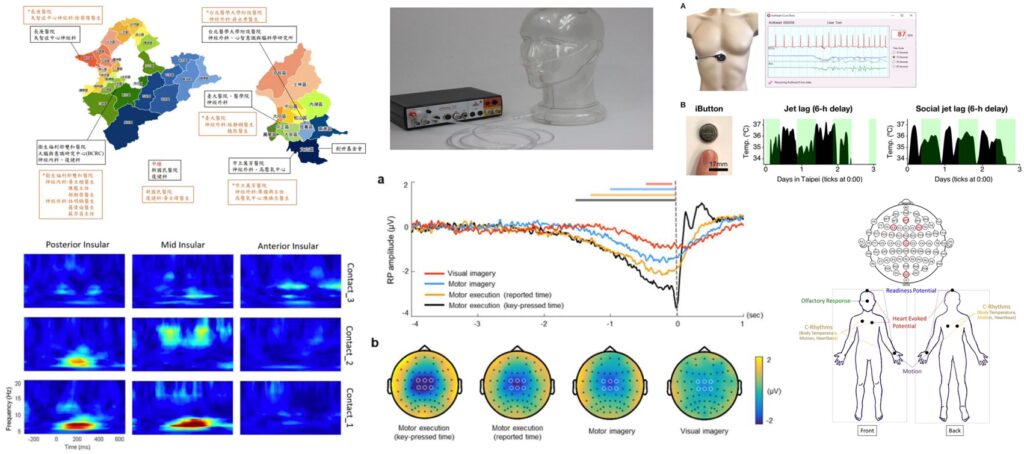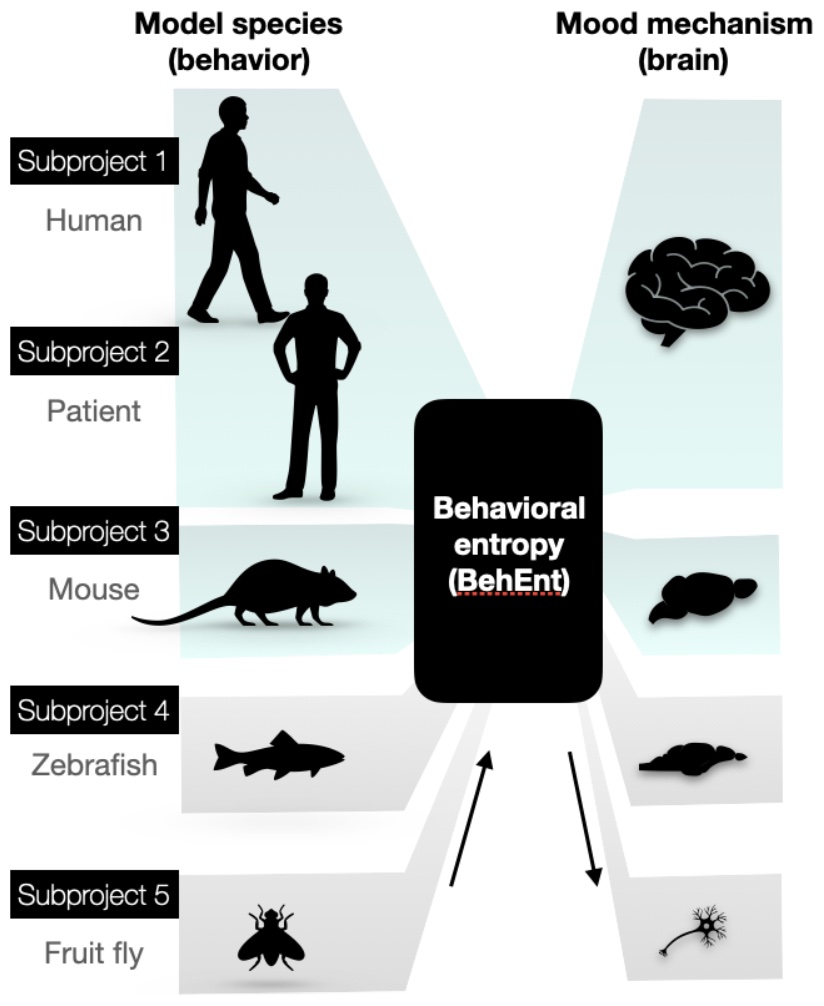Our research here at GIMBC is dedicated to advancing our understanding of the mind, brain, and consciousness. Our multidisciplinary team of scientists and scholars bring together expertise from fields such as neuroscience, psychology, philosophy, biology, and artificial intelligence to tackle some of the most challenging and exciting questions about the nature of (human) consciousness.

Another interdisciplinary core theme of research at GIMBC is the study of mood and its underlying mechanism. Despite the lack of a formal definition, we aim to find a unified scheme for quantifying mood in animal models using behavioral tests such as the open field test, tail suspension test, and choice tests. Our team is using an emerging concept of “behavioral entropy” as a consistent and universal measure of mood that takes into account the circadian fluctuations of dopamine levels and behavior. This research has the potential to not only advance our understanding of mood in both animal models and humans, but also open up new possibilities for clinical diagnosis and fundamental conceptual advances in mood studies in generalized systems. The integration of entropy into reinforcement learning theories for maximum cumulative reward decision-making can also provide new insights into the neural networks underlying motivation.
